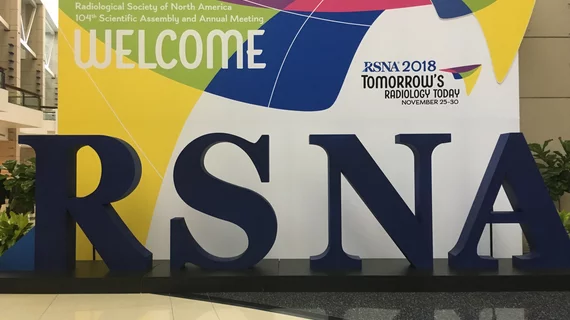RSNA garners more than 14,000 registrations as virtual annual meeting draws near
More than 14,000 people have signed up for the Radiological Society of North America’s upcoming meeting, the group reported Monday. It’s the first online-only event in the history of the annual gathering.
Back in May, RSNA decided to cancel its in-person 106th Scientific Assembly and Annual Meeting because of the COVID-19 crisis. It’s only done so twice before, in 1943 and 1945, due to transportation and gasoline supply problems surrounding World War II.
And despite the new format, James P. Borgstede, MD, president of the Oak Brook, Illinois-based organization, said they’re happy with the turnout.
“We’re very pleased to have this many attendees registered so far in advance of our first-ever entirely virtual event, and we expect registration to continue to grow,” Borgstede added in a statement. “This just confirms that the RSNA Annual Meeting is radiology’s premier yearly forum, no matter the format.”
This year’s meeting features an added day, running Nov. 29-Dec. 5, with a theme of human insight/visionary medicine.
According to RSNA, attendees still have all the traditional opportunities at their fingertips, including the ability to network with colleagues, virtually attend education and science sessions, view nearly 200 vendor exhibits, and more.
“I’m looking forward to joining my colleagues from around the world at this unique RSNA Annual Meeting that underscores the importance of our specialty during this unparalleled time in healthcare,” Borgstede said.
You can read past coverage from RSNA here.

